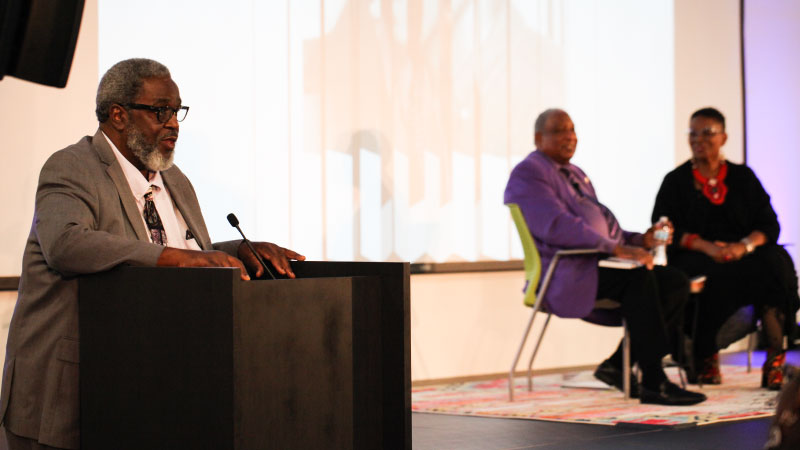The Power and Legacy of Kingian Nonviolence Conflict Reconciliation

Kingian Nonviolence Conflict Reconciliation is a curriculum based on Dr. Martin Luther King Jr’s philosophy of nonviolence and developed by Dr. Bernard LaFayette. Born and raised in Tampa, Florida, LaFayette was a close friend and confidant of MLK, Civil Rights Movement activist, minister, educator, co-founder of the Student Nonviolent Coordinating Committee, and director of the Selma Voting Rights Campaign.
What is Kingian Nonviolence?
The curriculum entails learning and analyzing MLK’s Six Principles of Nonviolence and six-step methodology. The Six Principles of Kingian Nonviolence are:
- Nonviolence is a way of life for brave people;
- the Peaceful (Beloved) Community is the goal for the future;
- attack problems not people;
- know and do what is right, even if is difficult;
- avoid hurting the spirit and body of yourself and others;
- the universe is on the side of justice.
The six-step methodology includes personal commitment, information gathering, education, negotiation, and direct action. Through these principles and methodology, the curriculum enables people to become familiar with a viable, practical, and historically effective map for how to create lasting social change through nonviolent direct action and dig deep below conflicts to find true reconciliation.
Global and Local Implementation
The program has been implemented globally, including Nigeria, Columbia, South Africa, Mexico, and the Middle East.
Femi Kennedy and Dr. LaFayette Jr. used the protocols to help 16,000 Nigerian ex-militants regain their citizenship and re-engage themselves in society. Although the pieces of training sometimes had a rocky reception, Kennedy said that by the second day there was always a shift in the room explaining, “It’s natural for a person to want to love and be loved and be in a comfortable environment without any fears…everyone wants that.”
